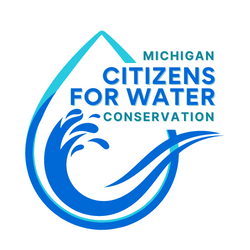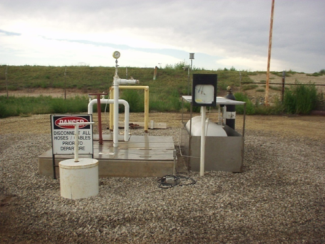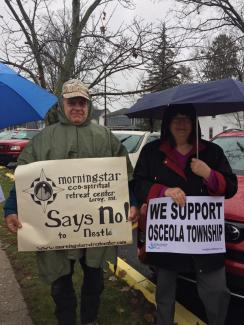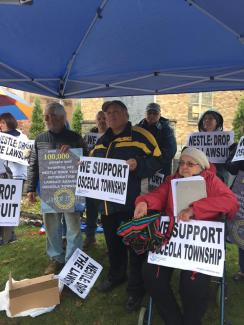Injection Wells
The Great Lakes Basin, home to 20% of the world’s freshwater, should not be a toxic waste dump.
Injection wells are toxic dump sites. They reach 5000 feet down through our groundwater aquifers and empty underground. They are not contained. In Michigan, there are over 1800 injection wells. Another 7000 Enhanced Oil Recovery (E.O.R.) injection wells pump freshwater to stimulate oil and gas production.
Background
The Michigan Department of Environmental Quality hasn't denied a permit for oil or gas injection wells in over 12 years. Injection wells dispose wastewater from oil and gas drilling. The water contains high levels of salt, BTEX chemicals, and sometimes radioactive material.
Only minimal staff from the US Environmental Protection Agency and the Michigan Department of Environmental Quality monitors the wells. The oil and gas companies monitor themselves. The United States Geological Survey has determined that injection wells do cause earthquakes.
Injection Well coming to a Site Near You?
Check out this new Google Map to find out.
Ziyad Emara, a student at Greenhills School in Ann Arbor, chose to work with MCWC to map pending injection well permits as his eighth-grade sustainability project. He has completed his school project but has chosen to go on assisting MCWC in continuing to update the map so we can present to citizens the information they need to determine the risks of such wells in their communities. Take a look at this map to see where a well might be coming near you and the environmental impact that it might have. Consider filing comments and requests for hearings with the EPA and with EGLE. When communities raise their voices and call attention to these threats to our freshwater resources, we can make a difference. Click on the button for each location to get detail on conditions near the site. If you want help in organizing let us know. We have presentations and speakers on injection wells and information on how to resist them.
MCWC's Position
MCWC works with citizen groups in Mecosta, Barry, Oakland, Clare, and Gladwin Counties. We help people understand the liabilities of injection wells and encourage community action. Testify at hearings. Question industry and government about the safety of injection well permitting and inspection.
MCWC believes the US Environmental Protection Agency and the Michigan Department of Environmental Quality should monitor injection wells more closely. Older oil and gas wells within in a mile radius of permitted injection wells should also be inspected. More safety recommendations are necessary to protect our groundwater.



